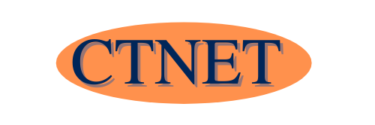With the recent announcement and approval of Elon Musk’s take over bid for the social media platform Twitter. It raised some initial concerns about the future of free speech on Twitter.
These concerns resonated with some of the points Azeem Azhar makes in his excellent book Exponential regarding the exponential growth of social media during the twenty-first century.
In this article, I will raise some of my concerns hoping that I can add something to the discussion.
My concern isn’t related to a single person
I try to keep my social media use to a reasonable level, and the only real social media platforms I use are Twitter and YouTube. So I did feel some concern when it was announced that Elon Musk had put forward a bid to buy Twitter.
But as I thought about it, I realised that the problem is more significant than this. Currently, there are only a small number of popular Social media platforms, including the following.
- Facebook (Meta Platforms)
- Instagram (Meta Platforms)
- WhatsApp (Meta Platforms)
- Twitter (Twitter)
- YouTube (Google)
- Snapchat (Snap)
- TikTok (Bytedance Ltd)
It is even more concerning that some of them are owned by the same company, potentially limiting our ability to share our opinions on these platforms.
We have the same problem in the traditional media with newspapers and news channels on TV owned by a few billionaires who might not even live in the country. Who use these papers to influence public opinion. I’m all for the free press, but is this the best model? A topic which is worth its own discussion.
The reduction of Free speech is a concern. I’m a democrat who believes that our democracies need to be protected, and one of the cornerstones in any democracy is free speech.
Protecting the right to free speech
As I stated in the previous paragraph, free speech is the cornerstone of any democracy, and I’m not alone in this belief. It is enshrined in the US constitution as the first amendment as well as being defined here in the UK under the Human Right act of 1998.
It is also defined within article 19 of the United Nations Universal declarations of human rights. So as a society, both nationally and internationally, we have agreed that free speech is essential.
However, the right to free speech also puts some responsibility on us, especially in public arenas such as social media. Which are.
- Respect the opinion of others
- Don’t threaten or bully others
- Don’t spread misinformation or lie
For the health of our society, I think not allowing the spread of misinformation or lies is the most important. How can we have a meaningful debate on information that is wrong? It corrupts our very system.
Around this time last year, Twitter even announced plans to try and tackle misinformation.

Social media have become virtual meeting halls
Social media such as Twitter has become a place where people with common interests find and meet other like-minded people helped by the social media algorithms.
Unfortunately, there is a downside to having these groups of like-minded people. You can become blinkered to what is happening around you in the real world. I’m going to share my own experience with this.
I’m a Labour supporter who wanted to remain in the European Union, and a lot of the people I follow on Twitter have similar opinions. During the build-up to the 2019 British General Election, I thought Labour had an outsight chance of winning the election. I was somewhat shocked and disappointed when Labour lost 59 seats.
As well as meeting with like-minded people some of us use Social media such as Twitter as a news source. 14% of us here in the UK using Twitter, and 35% of users in Africa. I have included the link to the Guardian article.
These virtual meeting halls can be beneficial for us all. We can share our thoughts and opinions with other people, generating new ideas. We need to encourage this while minimising the risks.
How can we guarantee our rights?
Both the EU and the UK have legislation designed to protect the rights of their citizens. They would expect any social media companies that operate in their jurisdictions to obey these laws.
I doubt the legislation is where it needs to be at the moment. Many Social media companies are American, and it would be helpful if the American government passed some legislation. Ideally, the US, EU, and UK legislation were similar.
Conclusion
I hope that you found this blog interesting or useful. I would like to hear your thoughts on this which you can leave in the comments section below or if you prefer Twitter.
